News
Bolivia's "cholitas" take the FéminAs award for women with no limits
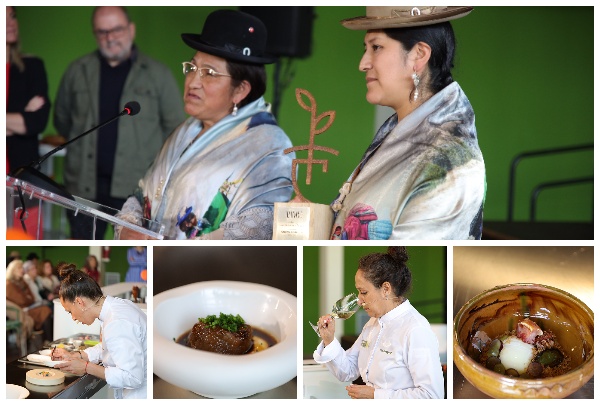
Dora Magueño and Ana Lía Rodrígues take the Guardians of Tradition Award on behalf of Bolivia's "cholita" mountaineers, and reaffirm their commitment to the indigenous culture and transmission of the culture in an emotional address.
On the second day of FéminAs, the Nalón Valley was the venue for acknowledgement of Bolivia's "cholita" mountaineers as an example of betterment and a model of inspiration, not only for indigenous communities and their cultural and gastronomic heritage, but also for "women all over the world, on the basis of our strength and our power, and because we have to realise everything we can do", as an emotional Ana Lía Rodrígues said when she took the award.
Echoing her words, her mother Dora Magueño, a mountain chef for over 25 years, humbly admitted "I like cooking", and told the congress she was honoured to display her traditional broths and soups beyond her country's borders. Magueño also had a few words for "all the men who support women", and congratulated them for embracing this communion with equality.
The mountaineering prowess of the "cholita" climbers, who one day decided to leave the base camps where they cooked for foreign expeditions and scale Bolivia's six-thousander mountains, has brought them the most fame worldwide, but Lía homed in on one of the values that genuinely make their feats so special - links between generations, and the transmission of tradition. “The role my mother has played, as a woman, as a chef, and as a friend, is very important to me. Together we have not only scaled many physical mountains, but other kinds of mountains too. I wish to thank her for teaching me the value of hard work, that I should never give up, and that I should feel proud of my roots", said the young Aymara woman.
Product and territory as a culinary heritage
In the wake of the story of how Bolivia's "cholitas" bettered themselves, the "guisandera" stewmistresses of Asturias agreed with the feeling of a transmission of tradition, something in which Asturias' culinary heritage has been consolidated by the new generations of female chefs that have taken over the kitchens at family enterprises all over the Principality, represented today at FéminAs. They were Natalia Menéndez (Casa Chuchu, Turón), Sara López (Casa Telva, Valdesoto) and Noelia García (Los Pisones, Gijón). Each of them produced a recipe with deep roots in tradition: stuffed onions, typical fare in the mining area, from Natalia; maize cakes with cabbage, a fusion of the cultures of Asturias and the Indies, from Sara; and the "picatostes" ("torrija" toasties) by the grandmother of Noelia, who did not hesitate to point out that "a recipe handed down from generation to generation is of incalculable value".
Another grandmother, Aurora, was also praised by Madrid chef Pepa Muñoz (El Qüenco de Pepa) as she made up a "crumb" dish ("migas"). She went on to make a stand for the role of producers in the gastronomy sector. A staunch defendant of produce, Pepa told congress-goers that "we have to work on capitalising the countryside, because otherwise it's all over", and urged chefs to "promote our suppliers, be they farmers, mushroom gatherers, fishermen or cattle breeders".
The concept of respect for produce is also appreciated on the other side of the Atlantic, as Chilean chef Pilar Rodríguez pointed out. She runs the Food&Wine restaurant in Colchagua, two hours away from Santiago, rooted in the O’Higgins winemaking region, where Pilar applies the concept of terroir to kitchen, as a combination of climate, land and tradition. “Traditions in the rural environment have some very deep roots; I try to update them by giving them a more modern setting, albeit with respect at all times for origin, to serve up local cuisine where relations with the producer are essential. Chefs are a platform to promote them, and help perpetuate the local richness of gastronomy", she said.
This challenge of establishing landscape cookery, albeit with the addition of her own roots, is also taken up by María Cano, sous-chef at Majorca's two-star Voro restaurant, where she shares the kitchen with Álvaro Salazar. Our recipes "contemplate the Balearic Islands, without forsaking our roots", she claimed. She also linked the talk to her predecessors of yesteryear, and to the message repeated by the "cholitas" as they took their award: promotion of the role of the preceding generations for their work in so, so many kitchens. “I'm from a family of five women, and from a very early age my mother taught us values such as education and hard work, so necessary in all aspects of life to break through the glass ceilings preventing women from achieving the objectives they deserve”, she explained, adding that "in my case, it was my grandmother Kika who inspired me in the kitchen; while for Álvaro (Álvaro Salazar, the other 50% at Voro) it was his aunt Luisa, and I feel sure that, if we ask many of the leading chefs in this country, the careers of most of them were mapped out by women in their families".
Sharing experiences and talent
Directed by gastronomy journalist Nieves Caballero, the congress also allowed us to listen to four women working in the increasingly appreciated world of restaurant floor management: Montse Serra, who runs the floor at Miramar** (Llançà, Girona); Noemí Martínez, floor manager and sommelier at Trigo* (Valladolid); Iratxe Miranda, floor manager and sommelier at Yume (Avilés); and the youngest member of the group, Delia Melgarejo, floor manager and sommelier at Monte* (San Feliz, Lena).
They made a stand for their job, but they also shared some of its secrets. We were told that the vocation emerges and you work on it, but this has to go hand in hand with training because, as Noemí Martínez explained, “you have to move with the times and recycle”. There is technique on the floor, just as there is in the kitchen, and organisation, a lot of organisation: “the less you leave to improvisation, the better the service will be”, said Montse Serra. A Basque lady now settled in Asturias, Iratxe Mirada, added a new component to the equation, which was deemed essential by all of them: the diner. “It's the customer who's mapping out our path", Iratxe admitted. "You have to observe and listen. Not all customers are the same, it's they who tell you what they need, and you really learn from them day by day”.
The event was rounded off by another round table focusing on female talent and its richly deserved recognition in the primary sector and the catering industry. The round table featured Irene Rodríguez from Cantabria, enologist and owner of Bodega Hortanza (Trebuesto, Cantabria), a project which won acclaim last year as Cantabria's best entrepreneurial project; and the young Galician María Maceiras, a shellfish gatherer in Muros (La Coruña), whose stand for the need to protect marine resources on social media won her the Alimentos de España National Young Talent Gastronomy Award. Representing Asturias, Natalia Lobeto and her mother Marigel Álvarez, owners of Quesería Redes (Campo de Caso), heading up a project to retrieve the award-winning "Casín" cheese, and, from the catering sector, chef Susana Casanova, who runs La Clandestina (Zaragoza) and won the Best Spanish Tapa Award at Madrid Fusión 2023.


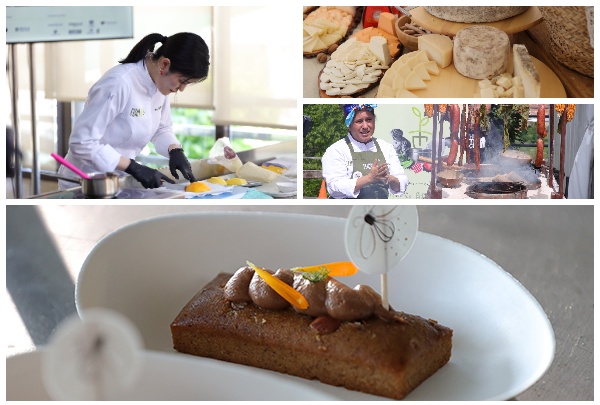
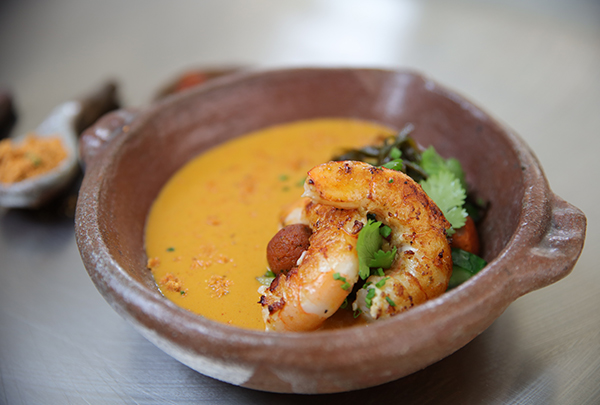
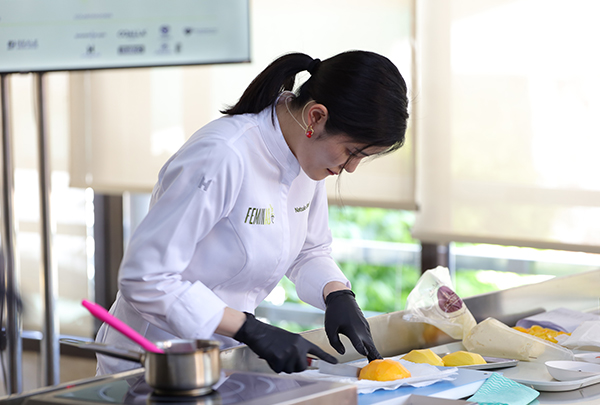
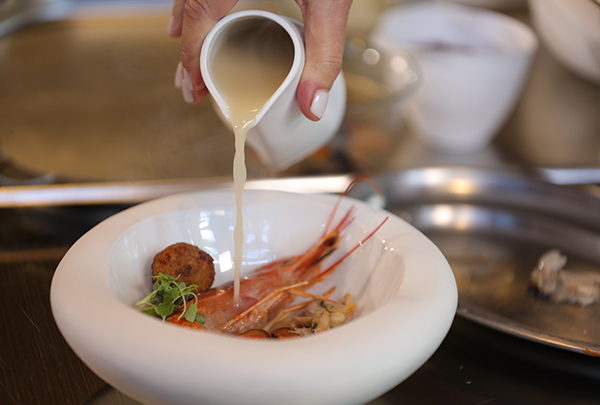
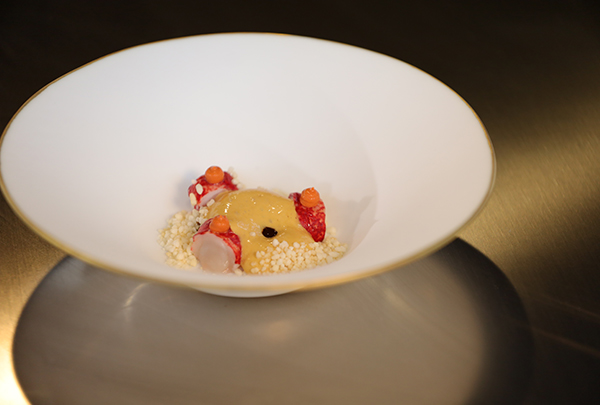
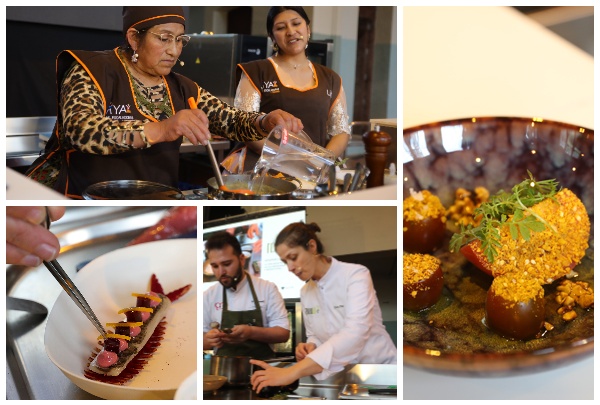
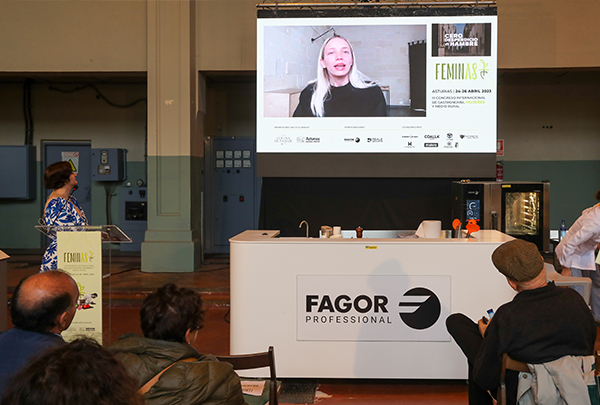
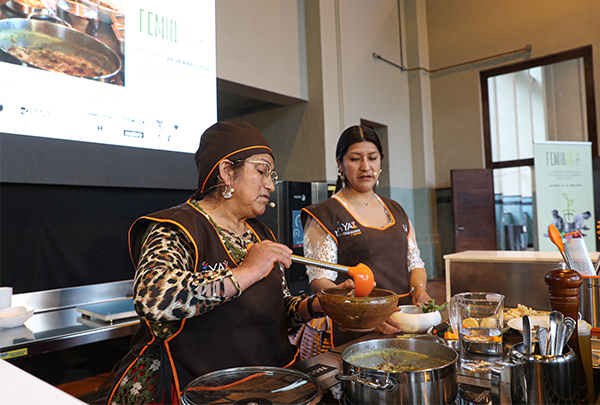
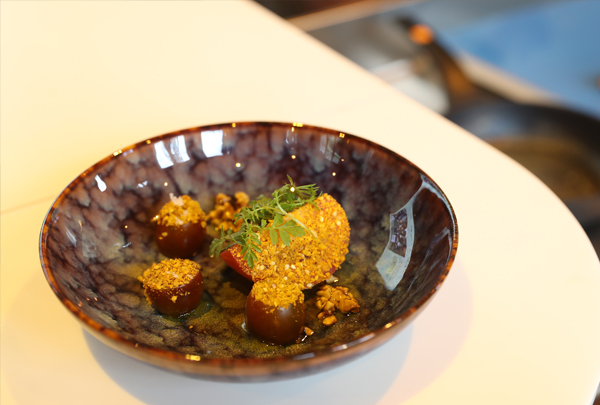
.jpg)










